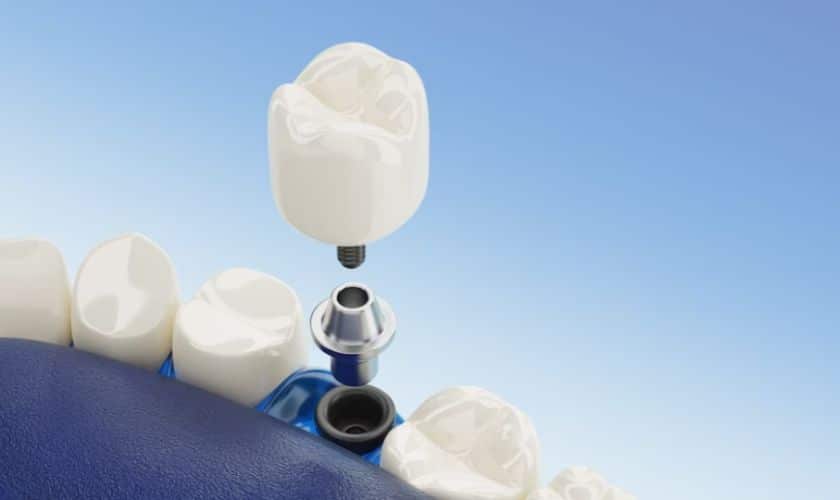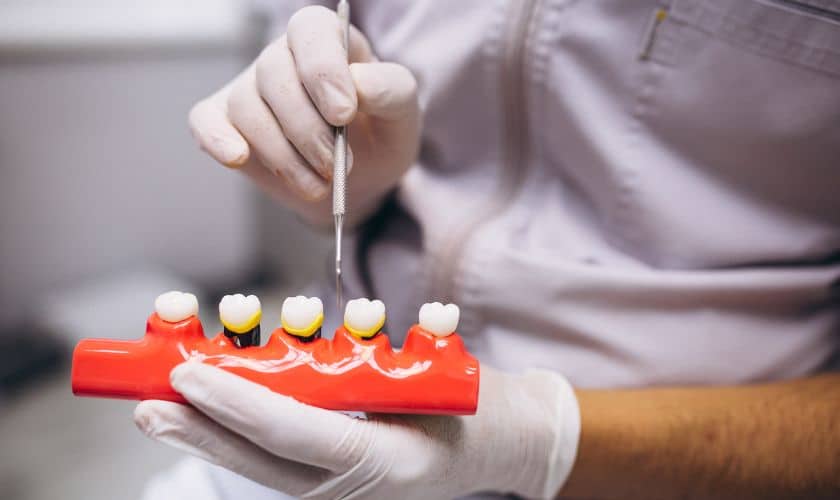Welcome to the world of dental innovation and transformation, where dental implants offer the perfect solution to restore your teeth and rejuvenate your smile. With their natural look, durability, and functionality, dental implants provide a permanent and secure foundation for replacement teeth. Say goodbye to gaps and hello to a confident smile that feels and functions just like your natural teeth. In this comprehensive guide, we will explore the transformative power of dental implants, discussing the benefits, procedures, and incredible impact they can have on oral health and overall well-being. Prepare to embark on a journey toward a beautiful, functional, confident smile.
Dental Implants Overview
Dental Implants are revolutionary for restoring missing teeth and transforming your smile. These implant-supported tooth replacements provide a natural-looking and functional alternative to traditional dentures or bridges. Dental implants offer exceptional stability and durability by securely anchoring artificial teeth into the jawbone. They also promote jawbone health by stimulating bone growth and preventing bone loss. With their ability to restore your ability to eat, speak, and smile confidently, dental implants have become a preferred choice for individuals seeking a long-term tooth replacement option. Explore the wonders of dental implants and discover the transformative impact they can have on your oral health and quality of life.

Different Kinds Of Dental Implants:
1. Endosteal Implants: These are the most common type of dental implant, consisting of titanium screws surgically placed directly into the jawbone.
2. Subperiosteal Implants: These implants are placed on or above the jawbone beneath the gum tissue. They are suitable for traditional implants for patients with insufficient jawbone height or density.
3. All-on-4 Implants: This technique involves placing only four implants per arch to support a full set of teeth. It is a convenient and cost-effective solution for patients with significant tooth loss or edentulism.
4. Mini Implants: These are smaller in diameter than traditional implants and are often used to stabilize dentures or for patients with reduced bone density.
5. Immediate Load Implants: Also known as same-day implants, these implants allow for the placement of a temporary crown or bridge immediately after implant placement, eliminating the need for a waiting period. They provide immediate restoration and functionality.
6. Zygomatic Implants: Zygoma implants are used in cases where the patient has severe bone loss in the upper jaw. They are anchored in the cheekbone (zygomatic bone) instead of the jawbone, providing a stable foundation for the dental prosthesis.
Positive Aspects of Dental Implants
1. Natural appearance: Dental implants closely resemble natural teeth, providing a seamless and natural-looking smile.
2. Improved oral health: Dental implants do not require altering adjacent teeth, unlike other tooth replacement options. It helps preserve the integrity of surrounding teeth and promotes better oral health.
3. Enhanced speech and comfort: With dental implants, you can speak and eat comfortably without worrying about slippage or discomfort, as they are securely anchored in the jawbone.
4. Long-lasting solution: Dental implants are designed to be a durable and long-lasting tooth replacement, potentially lasting a lifetime with proper care.
5. Restored chewing ability: Dental implants restore the ability to bite and chew properly, allowing you to enjoy a varied and nutritious diet.
6. Boosted self-confidence: Dental implants provide a confident smile, enhancing self-esteem and improving the overall quality of life.
Whom Are They Appropriate For?
1. Individuals with missing teeth: Dental implants are an excellent option for those with one or more missing teeth and looking for a permanent solution.
2. Healthy gums and jawbone: Suitable candidates for dental implants should have healthy gums and a strong jawline to provide a stable foundation for the implant.
3. Non-smokers: Smoking can negatively impact the success of dental implants. Therefore, non-smokers are typically more suitable candidates.
4. Good overall health: Dental implant surgery is a minor surgical procedure, so candidates should generally be in good overall health to ensure successful healing and recovery.
5. Commitment to oral hygiene: Maintaining good oral hygiene is crucial for the long-term success of dental implants. Suitable candidates should be willing to follow proper oral hygiene practices and visit the dentist regularly for check-ups and cleanings.
6. Adequate bone density: Sufficient bone density is essential for the successful placement and integration of dental implants. In cases where the jawbone lacks density, additional procedures such as bone grafting may be necessary to ensure a successful outcome.
Dental Implants Maintenance Tips
1. Maintain good oral hygiene: Brush your teeth twice daily and floss daily to keep your dental implants clean and free from plaque buildup.
2. Avoid hard or sticky foods: Be mindful of what you eat to prevent damaging or dislodging dental implants. Avoid chewing on hard objects like ice or biting into sticky candies.
3. Attend regular dental check-ups: Schedule routine dental visits to monitor the health of your dental implants and address any potential issues early on.
4. Quit smoking: Smoking can negatively impact the success of dental implants. If you’re a smoker, consider quitting to improve your implants’ longevity and overall health.
5. Protect your implants during physical activities: If you engage in sports or activities that pose a risk of dental trauma, wear a mouthguard to protect your dental implants and natural teeth.
In conclusion, Dental implants offer a transformative solution to restore missing teeth and rejuvenate your smile. Their natural appearance, durability, and functionality provide the perfect fit for a confident and radiant smile that can truly transform your teeth and enhance your quality of life.
Source: Periodontal Implant Associates
FAQs About Dental Implants
1. What are dental implants?
Dental implants are artificial tooth roots of titanium surgically placed into the jawbone to support replacement teeth.
2. How long do dental implants last?
Dental implants can last a lifetime with proper care and maintenance. They are designed to be a permanent solution for missing teeth.
3. Is the dental implant procedure painful?
The dental implant procedure is typically performed under local anesthesia so you won’t feel any pain during the surgery. Some discomfort and swelling may occur after the procedure, but it can be managed with pain medication prescribed by your dentist.
4. Can anyone get dental implants?
Generally, most healthy individuals with sufficient jawbone density can get dental implants. However, certain medical conditions or habits like smoking may affect the success of the implant. A thorough dentist or oral surgeon evaluation is necessary to determine if you are a suitable candidate.
5. How long does the dental implant process take?
The dental implant process can vary depending on individual cases. It typically involves multiple stages, including implant placement, the healing period, and the placement of the final restoration. The treatment duration can range from a few months to several months, depending on factors such as the patient’s healing ability and treatment plan.




